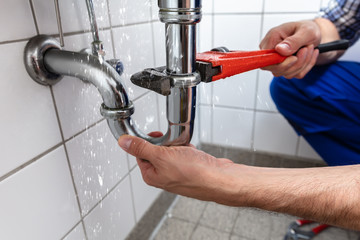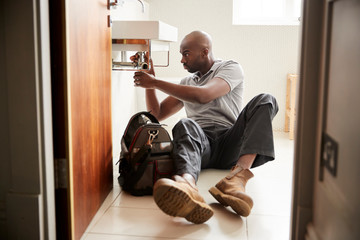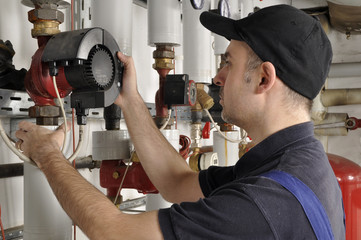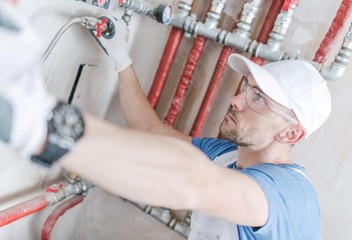How to Become a Plumber
Do you enjoy tinkering and fixing things? If so, a career as a plumber could be for you.
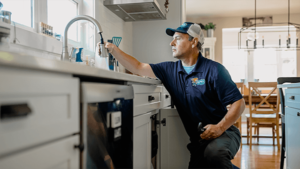
Granada Hills Plumber install and repair pipes, fixtures, and other plumbing equipment used for water distribution and waste water disposal. They must be able to read blueprints and understand engineering concepts.
Plumbers use a variety of tools and techniques to install, repair, or replace plumbing fixtures and pipes. They must have excellent hand-eye coordination and manual dexterity to work with small tools in tight spaces. Plumbers also need strong problem-solving skills to quickly identify and resolve issues. Other important traits include attention to detail, the ability to think creatively, and strong communication skills.
Plumber jobs often require physical strength and endurance to lift heavy objects, climb ladders, or crawl through narrow crevices. They must be able to endure hot and cold temperatures as well as harsh weather conditions. Plumbers also need good customer service skills to interact with clients, supervisors, and other personnel. They must be able to explain technical information clearly and answer questions effectively.
The plumbing industry is constantly evolving, so plumbers need to stay abreast of new technologies and equipment. They should have a strong understanding of physics and mathematics, such as water flow, pipe sizes, and material selection. This knowledge is essential for planning projects, making accurate measurements, and ensuring that installations are done correctly. Plumbers should also be able to read blueprints and understand how different materials react with each other.
Whether they’re installing a water line to a new home or unclogging a drain in an office building, plumbers must be able to follow safety protocols to avoid injuries and property damage. They must be familiar with all local and state plumbing codes and regulations. Plumbers should also be able to identify potential hazards in the workplace and take corrective measures to prevent accidents.
Because plumbers often work with complex machinery and dangerous tools, they must be able to follow all safety protocols. This includes wearing protective gear, following all relevant health and safety guidelines, and keeping up-to-date with all industry news. They should also be able to handle emergency situations by taking charge of the situation and directing other employees. In addition to these technical skills, plumbers need good organizational and administrative abilities to schedule consultations with clients, prepare budgets, estimate costs, and complete paperwork.
Education
Plumbing is a trade that requires specialized training. Having a high school diploma is generally required, and attending technical school with courses in pipe system design, safety, and tool use is also beneficial. Many plumbers gain experience on the job, but others participate in apprenticeship programs that can last 4-5 years. Once a plumber has completed an apprenticeship and other requirements set forth by their locality, they can apply to become licensed.
In addition to having a strong work ethic and physical strength, plumbers must have good verbal communication skills to communicate with customers and describe the work needed. They must also have the ability to solve problems quickly, as they often work in small spaces with limited light and equipment.
Some colleges have programs specifically designed to teach people how to become plumbers, including hands-on learning and on-the-job training. In this program, students learn how to read blueprints and commercial drawings, install water heaters, boilers, and heating systems, and use various plumbing tools. Students can take this course while they are still in high school or after graduation.
Plumbers can also enter the field by completing an apprenticeship, which combines classroom studies with on-the-job training with a licensed plumber called a “journey worker.” During this time, apprentices earn money while they learn the trade. Wages typically start at about 50 percent of a journeyman plumber’s hourly rate and increase over the years of their apprenticeship.
Continuing education is an important part of any career, and it’s no different for plumbers. They must keep up with new technology and procedures as the industry changes so they can continue to provide their customers with quality service. Some plumbers even go as far as to get a bachelor’s degree in their field, which opens up other career paths with higher salaries.
Getting the right education can help you achieve your dream career, but it’s not always easy to find ways to pay for school. There are some options to consider, including using your savings and applying for grants. Grants are great because they don’t have to be paid back, but they can be difficult to obtain. You can also apply for scholarships if you meet the qualifications.
Experience
A plumber needs a great deal of experience to be successful. They must have a strong working knowledge of heating and ventilation systems and appliances, as well as water distribution and disposal systems. They also need to know how to use a variety of tools and equipment, including wrenches and caulking guns. In addition to these technical skills, a plumber must be comfortable working on ladders and in cramped spaces. Finally, they must be able to listen to their customers and determine what the problem is.
In your resume, list all of your work experience in reverse chronological order, beginning with the most recent job first. Include a brief description of the job and your responsibilities and accomplishments. If possible, include specific numbers, like how many calls you answered in a week or how many plumbing fixtures you installed in a day. Also, be sure to include any relevant education in the education section of your resume. You should also list any apprenticeships you’ve completed.
One of the most important things to include on your resume is your technical knowledge of plumbing systems and tools. This is especially important if you’re applying for a plumbing internship or similar position. This will show that you have the experience and expertise to succeed in the role. You should also highlight any special skills you have that can help you stand out, such as being able to use a hydro jet to clear blockages in pipes. Another essential skill is being able to read blueprints and understand how to install plumbing in new construction or remodeling projects. Lastly, you should mention any specialized training or certifications you have that can help you do your job better. For example, if you have a master plumber’s license, this will demonstrate your advanced knowledge of the field and increase your chances of getting hired. Similarly, if you have an EMT license, this will show that you are qualified to handle emergency situations. While these qualifications are not necessarily required for every plumber, they can be a good way to distinguish yourself from other applicants.
License
In most states, a plumber must have a license to work as a tradesman. Each state’s licensing requirements are different, but many require a certain number of years of experience, an exam, and other criteria. Some cities may also have additional restrictions on who can do plumbing work in that area. Plumbers who move to a new city should check the local regulations before starting work.
To obtain a license, a candidate typically has to submit an application and fee to the state or city licensing authority. He or she must then complete a specified number of hours of continuing education each year to maintain the license. These courses can include subjects such as state codes, blueprint reading, drafting, and OSHA. They are offered at community colleges, vocational schools, and some private companies that specialize in training plumbers.
Depending on the state, a plumber must pass a written and practical examination to receive a master plumber’s license. Those who fail the exam must wait at least one year before reattempting it. During this time, they are not permitted to work as plumbers. The Occupational Safety and Health Administration sets standards for workplace safety that all plumbers must follow.
Apprenticeship programs offer hands-on training in the field and give a good idea of what to expect in a career as a plumber. These programs can last two to five years and cover a variety of topics, from technical instruction to field and general studies. In most cases, an apprenticeship is required before a plumber can take the licensing exam.
Once a plumber has his or her license, he or she must carry liability insurance to protect against property damage and injuries that could occur on the job. There are several types of insurance available, including commercial general liability and professional liability. Most states and cities require plumbers to have a bonded contractor’s license. This type of license requires that the plumber secure a bond in the amount of $3,000.
Plumbers are responsible for installing and maintaining gas and water pipes, sanitation units, health systems, sinks, toilets, and other fixtures. They also assess and design these systems and ensure they meet all applicable rules and regulations. As a result, these workers must be physically strong and capable of lifting heavy equipment. In addition, they must have excellent critical thinking skills to weigh various options and make sound decisions.

